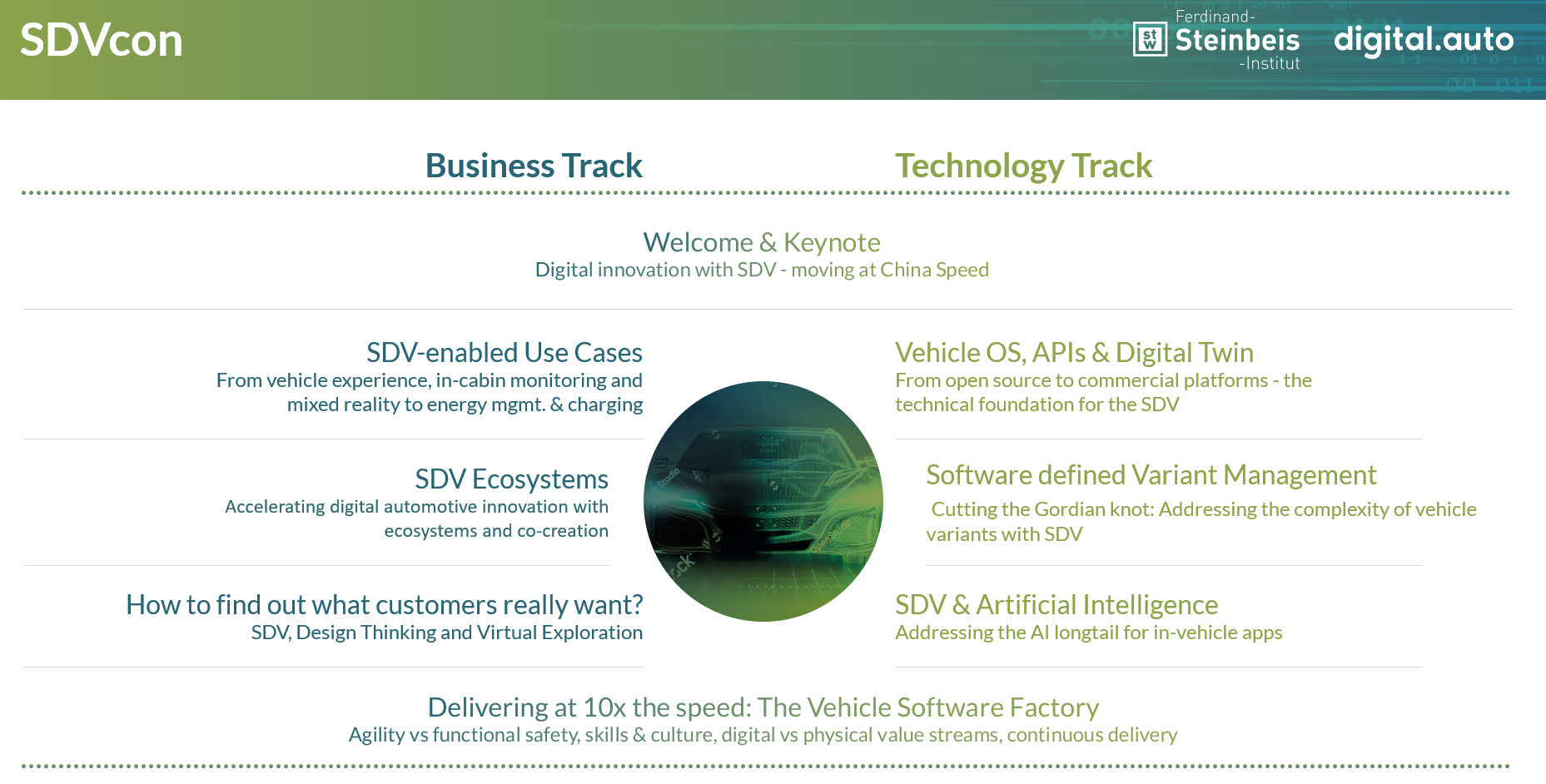
You can find the detailed program below
Track: Business Track
- Wednesday
22.11.
Shifting from a gas station mindset into a connected EV charging world: Why common vehicle data models matter (Matus Banyay, Ford)
A revolution has begun - it is no matter a question if EVs are coming but rather how the industry will make it happen. While we are seeing massive investments in infrastructure, public as well as private, a war of plugs and evolving standard in the EV domain, we also observe a gas station mindset in the broad mass of adopters and stakeholders. Is the key to charging…
Moving at China speed: start-ups vs incumbents in the global BEV market, and the role of SDV (Ran Ding, mm1)
In the ever-evolving landscape of global mobility, China stands at the forefront of innovation and transformation. This session will explore the multifaceted dimensions of ""China Speed"" in the context of mobility – a term that encapsulates both the breathtaking pace of change and the unique challenges along with opportunities presented by dynamic mobility landscape, including massive…
Automotive CX testing with real users – BMW Motorrad (Georg Hansbauer, Testbirds)
It has never been easier to develop and publish mobile apps. But how does an app team know what users actually need? How do they communicate with users? Who is there to assist if apps users need any support? And which role does crowdtesting play in the app development? Georg Hansbauer, co-founder and CEO of Testbirds, will take you on a ride through product success management, the spirit of the BMW Motorrad…

